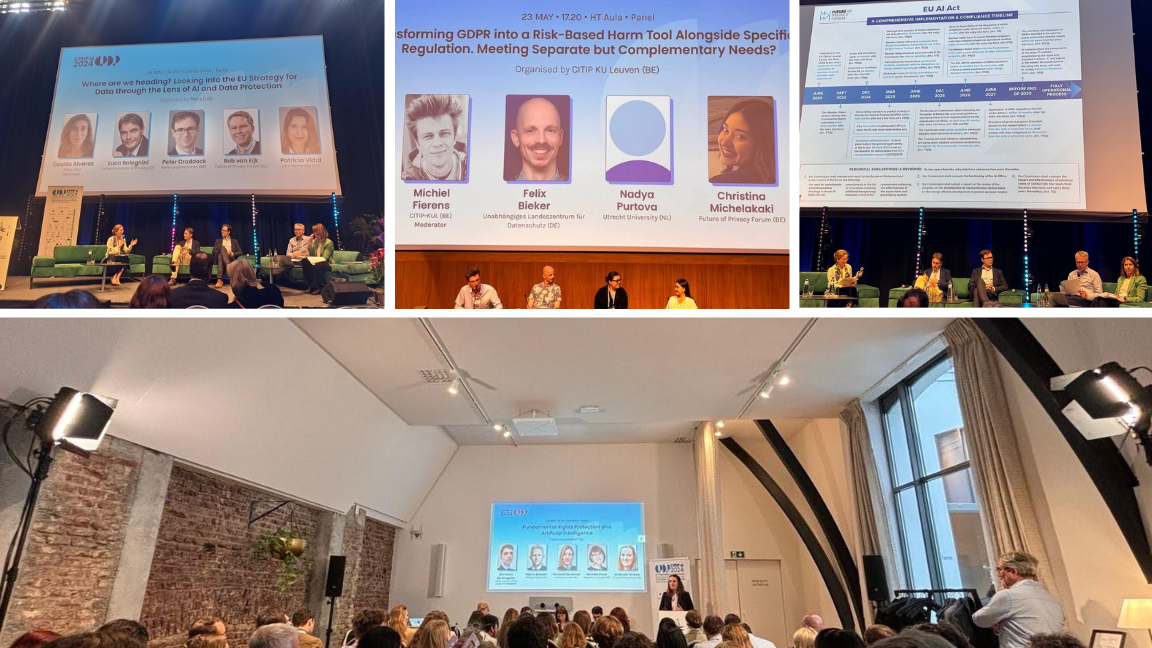
FPF Training Program 2024 – Private Training
FPF private trainings Live Virtual Trainings for OrganizationsChoose the Format that Fits You and Your Team PRIVATE TRAININGS Looking for a more personalized training experience for your team? FPF offers Private Training sessions for organizations on a variety of privacy topics, using our expert instructors to engage with your team. By opting for private training […]

The World’s First Binding Treaty on Artificial Intelligence, Human Rights, Democracy, and the Rule of Law: Regulation of AI in Broad Strokes
The Council of Europe’s (CoE) Framework Convention on Artificial Intelligence and Human Rights, Democracy, and the Rule of Law (Framework Convention on AI) was adopted on 17 May 2024, after two years of drafting and negotiation. This is the world’s first binding treaty on AI, focusing on protecting human rights, democracy and the rule of […]

Connecting the Dots on Privacy, Security, & Online Safety for Young People in Australia
Join us for the live webinar, Connecting the Dots on Privacy, Security, and Online Safety for Young People in Australia, co-hosted by the Australian Strategic Policy Institute and the Future of Privacy Forum on June 26 at 11:00am – 1:00pm Australian Eastern Standard Time. In our increasingly digital world, the boundaries of our expectations related to privacy, security and online safety are […]

FPF at CPDP.ai 2024: From Data Protection to Governance of Artificial Intelligence – A Global Perspective
Drawing inspiration from the latest developments in assessing the impacts and regulation of Artificial Intelligence (AI) technologies, the Brussels-based annual Computers, Privacy and Data Protection (CPDP) conference amended its acronym. The 17th edition became CPDP.ai for Computers, Privacy, Data Protection and Artificial Intelligence conference, taking place on 22-24 May. To govern or to be governed, […]

Future of Privacy Forum Recognizes Leading Careers in Privacy and Efforts in AI Regulation with Inaugural Global Award
June 11, 2024 – Last week, the Future of Privacy Forum (FPF) – a global non-profit focused on data protection headquartered in Washington, D.C. – presented the Government of Singapore with the inaugural Global Responsible AI Leadership Award for the country’s prominent, pragmatic, and respected work in establishing frameworks for AI regulation and governance and […]

Asia-Pacific
The Asia-Pacific Team FPF APAC is led by Josh Lee Kok Thong. Since its inception, FPF APAC has committed itself to the furthering of FPF’s global mission in the region, including to foster greater understanding, convergence, and interoperability of data protection and emerging technology regulation in the Asia-Pacific. Featured Asia-Pacific Focused Work Resources Global Offices FPF […]

Europe
Featured The FPF EUROPE Team FPF’s efforts in Europe are led by Dr. Rob van Eijk. Rob is an established and well-respected leader in the data protection field. Christina Michelakaki, Vasileios Rovilos, Bianca-Ioana Marcu, and Andreea Șerban complete the team in Brussels. The FPF Europe team seeks to raise awareness and foster debate regarding practical […]

Global
FPF is Working Alongside Stakeholders Worldwide on Ways to Improve Data protection AND EMERGING Frameworks. FPF closely follows developments in policymaking and regulation throughout Europe, Africa, the Asia-Pacific, India, Israel, and Latin America. We keep our stakeholders informed of relevant changes, case-law, guidance, policies, and legal requirements, while also providing background and in-depth analysis in […]

Adrienne Cuffley

Newly Updated Guidance: FPF Releases Updates to the Generative AI Internal Policy Considerations Resource to Provide New Key Lessons For Practitioners
Today, the Future of Privacy Forum (FPF) Center for Artificial Intelligence is releasing a newly updated version of our Generative AI internal compliance document – Generative AI for Organizational Use: Internal Policy Considerations, with new content addressing organizations’ ongoing responsibilities, specific concerns (e.g., high-risk uses), and lessons taken from recent regulatory enforcement related to these technologies. […]
